- Home
- About WVN
-
WVN Issues
- Vol. 1 No. 1 (Oct. 2017) >
- Vol. 2 No. 1 (Feb. 2018) >
- Vol. 2 No. 2 (Jun. 2018) >
- Vol. 2 No. 3 (Oct. 2018) >
- Vol. 3 No. 1 (Feb. 2019) >
- Vol. 3 No. 2 (Jun. 2019) >
- Vol. 3 No. 3 (Oct. 2019) >
- Vol. 4 No. 1 (Feb. 2020) >
- Vol. 4 No. 2 (Jun. 2020) >
- Vol. 4 No. 3 (Oct. 2020) >
- Vol. 5 No. 1 (Feb. 2021) >
- Vol. 5 No. 2 (Jun. 2021) >
- Vol. 5 No. 3 (Oct. 2021) >
- Vol. 6 No. 1 (Feb. 2022) >
- Vol. 6 No. 2 (Jun. 2022) >
- Vol. 6 No. 3 (Oct. 2022) >
- Vol. 7 No. 1 (Feb. 2023) >
- Vol. 7 No. 2 (Jun. 2023) >
- Vol. 7 No. 3 (Oct. 2023) >
- Vol. 8 No. 1 (Feb. 2024) >
-
Events
- CIES 2023, Feb. 14-22, Washington D.C., USA
- ICES 4th National Conference, Tel Aviv University, Israel, 20 June 2021
- 2022 Virtual Conference of CESHK, 18-19 March 2022
- ISCEST Nigeria 7th Annual International Conference, 30 Nov.-3 Dec. 2020
- 3rd WCCES Symposium (Virtually through Zoom) 25-27 Nov. 2020
- CESA 12th Biennial Conference, Kathmandu, Nepal, 26-28 Sept. 2020
- CESI 10th International Conference, New Delhi, India, 9-11 Dec. 2019
- SOMEC Forum, Mexico City, 13 Nov. 2018
- WCCES Symposium, Geneva, 14-15 Jan. 2019
- 54th EC Meeting, Geneva, Switzerland, 14 Jan. 2019
- XVII World Congress of Comparative Education Societies, Cancún, Mexico, 20-24 May 2019
- ISCEST Nigeria 5th Annual Conference, 3-6 Dec. 2018
- CESI 9th International Conference, Vadodara, India, 14-16 Dec. 2018
- ICES 3rd National Conference, Ben-Gurion University, Israel, 17 Jan. 2019
- WCCES Retreat & EC Meeting, Johannesburg, 20-21 June 2018
- WCCES Symposium, Johannesburg, 21-22 June 2018
- 5th IOCES International Conference, 21-22 June 2018
- International Research Symposium, Sonepat, India, 11-12 Dec. 2017
- WCCES Info Session & Launch of Online Course on Practicing Nonviolence at CIES, 29 March 2018
- WCCES Leadership Meeting at CIES, 28 March 2018
- 52nd EC Meeting of WCCES, France, 10-11 Oct. 2017
- UIA Round Table Asia Pacific, Chiang Mai, Thailand, 21-22 Sept. 2017
- Online Courses
|
Abstract After the uninvited shock of Covid-19, educational change demands teachers' ability to invoke learners' confidence, engagement, interest, critical thinking, creativity, etc. Teacher education should prepare teachers to fulfill these emerging demands of the school system for equitable rights to quality learning. Teacher-educators play a crucial role in the preparation of teachers and this paper sheds light on the various skills and classroom teaching practices that teacher educators should have in order to guide the next generation of teachers. In this exploratory qualitative study, data was collected from 78 pre-service teachers and 6 teacher educators in order to know the effectiveness of the teacher education for withstanding any future uninvited events that affect educational processes. The analysis of the survey and interview responses highlighted the need for up gradation of various skills of teacher educators related with pedagogical practices for bringing qualitative improvement in teacher education which consequently will meet the demands of equitable rights to quality learning. This study suggests that practitioner research can transform the teachers' preparation for today's digital learners. The study concludes that it is essential to upgrade various technological skills and pedagogical practices of teacher educators to bring qualitative improvement in education. Teacher education programs should focus on instructional strategies for the inclusion of ICT, blended learning, distance education and equitable rights to quality learning. It should provide knowledge of working with disadvantaged students. The teacher education programme should develop the capacity of teachers to be prepared for moulding/ training/ mentoring 21st century learners. Collaboration at all levels of school education and teacher education communities should be given importance for mitigating the challenges of school education. Keywords: Practitioner research; Professional development; Equitable Rights to Quality Learning; Re-engineering and reimagination; Teacher education; Teacher educators Introduction Although John Dewey (1916) initiated to redirect the trajectory of systems of learning for betterment of education, in a dynamic society, the education system will be ever-changing; thus reforms in education at all levels will be a continuous process. Many initiatives have been taken for improving learning experiences and outcomes but as they were focused on piecemeal or incremental reform, a comprehensive system of change still remains to be attained. A major attention of reforms during the past few years has been focused on the changing demands of education for the 21st century and this has hastened post the Covid Pandemic. Although use of technology is of prime importance, many other areas require the reengineering and reimagination of teacher education. The crucial change agents in these reforms are the teacher education programme, teacher educators, school leaders and the pre-service teachers. The paper sheds light on such reforms for quality learning. The present study was conducted during the post-Covid period in September 2022. It brought to notice the need/ indispensability of building digital skills among teacher educators and upcoming teachers in order to withstand any future pandemic like Covid-19 situations. The Pandemic showed us the incompetence of teachers in using ICT and the challenges that emerged for equitable learning. Quality learning demands the preparation of teachers and teacher-educators who should have the best teaching practices for developing 21st-century skills. The classrooms should be an innovative combination of digital and physical learning that will shape the future learners. For both education in innovation and innovation in education, there is a need for the up gradation of the pre-service teachers and teacher-educators so that technology will become integral to teaching, learning and assessment. Up gradation of these skills requires continuous professional development. The training and professional development opportunities for improving technical expertise for online teaching should be given priority. Teacher-educators should improvise themselves with various skills and classroom teaching practices to guide the next generation teachers. In order to know the current practices in the classrooms and with a futuristic view for quality learning, the research question were framed as follows - RQ. 1. What are pre-service teachers’ views for the future about the post-pandemic classroom practices in teacher education? RQ. 2. What are the views of pre-service teachers to better respond to emerging demands from the school system? RQ. 3. How do teacher educators envision teacher training programs for the enhancement of a teachers’ digital skills for 21st century classrooms? Literature Review The section below discusses the studies conducted before and after the pandemic for the improvement of teacher education. Studies conducted before the pandemic for the improvement of teacher education Today’s educational systems are complex, political, sociotechnical ecosystems that struggle to meet the needs of most learners and societal demands—and most critically, struggle to change (Groff, 2018). Various kinds of research suggested reforms in quality improvement in teacher education. According to Postholm (2016), collaboration between teacher educators, leaders and teachers contributes to the development of teacher education and school. A growing body of publications greatly stress the teacher educators’ task of engaging in research and becoming a teacher educator-researcher (Tack & Vanderlinde, 2014). Many studies focused on the importance of Self-study research. Self-study research refers to teacher educators researching their practice with the purpose of improving it, making it explicit and validating their professional expertise while, at the same time, contributing to the knowledge base of teacher education (Vanassche & Kelchtermans, 2015). Analysis shows that improvement in teaching is the result of the author’s learning through self-study (Bashiruddin, 2006). Exchanging personal experiences, discussing challenges, and the benefits of using their teaching practices play a major role in reinventing the future teacher education. Taking this into consideration, Coniam (2015) calls academics to examine their own practices, and suggests that there is much in one’s own professional experiences that can be of worth to the international community. Teaching out-of-field is also an important issue in many countries. It occurs because of systemic teacher shortages, unequal distribution of teachers, scheduling issues in schools, and the teacher education system where teachers are trained as specialists and not as generalists (Hobbs & Porsch, 2021). The National Education Policy, 2020 of India is founded on the five guiding pillars of Access, Equity, Quality, Affordability and Accountability. It aims to achieve an inclusive and equitable education system so that all children have equal opportunity to learn and thrive and that participation and learning outcomes are equalized across all genders and social categories by 2030 (NEP, 2020). Studies conducted during and after the pandemic for the improvement of teacher education The pandemic abruptly made the education system include technology in their practice. On the other hand, it gave the opportunity to come out of the rigorous classroom teaching model adopted by universities (Sinha, 2020). Though many teachers have minimum to no knowledge of teaching in an online classroom, they took it as a challenge during the pandemic and adapted to this new mode of teaching. Reopening of schools after the pandemic, the need of the hour is to learn from the experiences of online education during the closure of physical school. UNICEF & UNESCO (2021) conducted a Case Study Situation Analysis on the Effects of and Responses to COVID-19 on the Education Sector in Asia. In the Indian context it suggested, “Learning from Covid-19 experience is essential to help face similar emergencies in future. Teacher education programs should be reimagined and reframed to face such future difficulties”. Babinčáková & Bernard (2020) suggested the teacher educators to do their best and use all their possible resources to guide teachers and prepare them for decent further online teaching. The role of teachers in the 21st century should transition from ‘knowledge holders’ to ‘edupreneurs’ who can innovate in their classrooms and schools (KPMG, 2021). Considering the new normal, it is a need to include blended learning mode in teacher-education programmes. Methodology The researchers conducted an exploratory study using a purposive sampling technique. An online survey was conducted to know the Post-Covid perception of 78 pre-service teachers regarding their teacher education programme and their views about its future. A semi structured interview of 6 teacher educators was also conducted in order to know the effectiveness of the teacher education for withstanding any future uninvited events that affect educational processes. Descriptive statistics was used to analyze the survey responses whereas content analysis was used for analyzing the semi structured interviews. Data Analysis Graphical representations of the perceptions of pre-service teachers about the post-pandemic classroom practices in teacher education are shown in section below. Figure 1: Graphical representation of proficiency of teacher educators in using ICT It shows only 21.79% of teacher-educators were excellent whereas 7.69% were poor. And 28.21% were average in using ICT. Figure 2: Usage of the latest technologies and gadgets apart from mobile for in-class and out-of-class activities by teacher educators in pre-service teacher education programmes 30.8% educators use such technologies while a similar percentage replied that they sometimes used them whereas 38.5% replied no usage of such technologies. Figure 3: Proficiency of teacher educators in using instructional strategies Most of the teacher educators used the lecture method, discussion method, demonstration and activity-based learning as instructional strategies in their classroom. Whereas, the graph shows less focus on problem solving, project based and experiential learning. As the use of technology is limited in the classrooms, the latest instructional strategies such as flipped classrooms, STEAM education and gamification strategies are not used. Figure 4: Percentage of various skills promoted during classroom instructions Figure 5: Percentage of various social skills promoted during classroom instructions Figure 4 and Figure 5 shows the percentage of various 21st century skills promoted during classroom instructions. Figure 4 shows the promotion of creativity, problem solving, creative thinking and critical thinking. Similarly Figure 5 shows the percentage of social-skills such as collaboration, teamwork, leadership and decision-making skills promoted during classroom instructions by teacher educators. 69.23% pre-service teachers shared that decision making skill is promoted while 53.85% promoted teamwork and 30.75% agreed that their classroom instructions helped to promote collaborative and leadership among them. Though these skills are promoted, the pre-service teachers shared that more focus is still needed because real classroom settings need the proficiency of teachers in 21st century skill. Figure 6: Percentage of application of theory in practice teaching 61.5% of pre-service teachers think that they are not applying the theory during their practice teaching. Whereas the remaining 38.5% shared that they are applying. Figure 7: Percentage of satisfaction related to supervised practice teaching
Figure 7 shows only more than half (53.85%) pre-service teachers are satisfied with faculty supervision for their practice teaching. Whereas 23.08% were highly satisfied and the same percentage of pre-service teachers were neutral in their opinion. 4.2 The section below shows the pre-service teachers’ views for the future for teacher education programme to better respond to emerging demands from the school system - The researchers posed an open-ended question to the pre-service teachers in order to know their views about the future of the teacher education programme. Some of them shared their views that a teacher education programme should give them experience of using the latest educational technology so that it may help them during their practice and real classroom teaching. Similarly they are of the view that they should be given experiences of using the latest instructional strategies that cater enhancing the learners’ 21st century skills. According to them specifically, practice teaching should promote experiential learning, problem solving, flipped classroom, game based learning and STEAM education so that in future they can implement them during their real classroom settings. Some of them are of the opinion that application of theoretical knowledge into practice should be encouraged. A few of them shared the essentialness of teacher educators to update them with the current classroom environment. 4.3 The section below shows the envision of teacher educators regarding teacher training programmes for enhancement of teachers’ digital skills for 21st century classrooms The current research focused on the futuristic views of the teacher educators using semi structured interviews. They shared the need for up-skilling in the use of ICT of pre-service teachers’ and teacher educators’ capacity for blended learning which will be the demand of the educational system in near future. They also shared the need for the continuous professional development of both teacher educators and pre-service teachers. Next, they are of the view that preparation of pre-service teachers for the 21st century is essential for quality digital education. They suggested that teacher educators should create opportunities for collaborative work. Also, some of them found the need for monitoring the teacher education classroom for using digital instructional strategies. Preparing teachers to engage children in distance learning was one of the suggestions given by them. Conclusion The study concludes the need for the up gradation of various technological skills and pedagogical practices of teacher educators for bringing qualitative improvement in education. They should engage themselves in practitioner research. Teacher education programs should focus on instructional strategies for the inclusion of ICT, blended learning and distance education. It should provide knowledge of working with disadvantaged students. Professional development should be given importance at all levels. The teacher education programme develops the capacity of teachers to be prepared for teaching 21st century learners. Collaboration at all levels of school education and teacher education communities should be given importance for mitigating the challenges of school education. Recommendations As there are new trends emerging across the education spectrum, the teacher education programme must be reimagined. The study recommends a few ways for re-engineering and reimagining the teacher education programme which are given in the section below-
The study also recommends the various skills and classroom teaching practices that teacher educators should have to guide the next generation teachers - ● The skill of blending online and face to face instructional design. ● The skill of using technology to engage the learners for personalized learning ● The skill of finding and using OER ● The skill of Self-assessment and self-evaluation ● The skill of employing team teaching, collaborative learning Some of the reforms are – Firstly, Teacher educators should conduct self-study or practitioner research. As suggested by Shulman (1987), evaluating one's own teaching practices, challenges and opportunities makes a qualitative difference instead of being defined by external observers, decision makers or others. By examining their own practice and searching for new approaches and understandings related to challenges, teacher educators´ can make a transformation from being knowledge consumers to being knowledge producers (Hauge, 2021). Secondly, collaboration between school leaders, in-service teachers, teacher educators and pre-service teachers will help in knowing the current challenges of the classroom and thus will help to reorient the teacher education. Next, many times Out-of-field teaching practices create challenges to novice teachers. Quality learning is a right of every student which assures teaching by a qualified teacher. Hence the teacher education programme should ensure the pre-service teachers with knowledge of working with disadvantaged students. The programs should align with the needs of disadvantaged schools. It should give the opportunity to explore the importance of equitable learning environments in terms of a diverse group of students. It should provide opportunities like field visits and practice lessons in such schools. Quality in teacher education also involves learning to include all learners and having the necessary knowledge and skills (Imig & Imig, 2007). 7. Acknowledgements Dr Narendra D Deshmukh acknowledges the support of the Government of India, Department of Atomic Energy, under Project Identification No. RTI4001. The authors would like to recognize the support of all the pre-service teachers and teacher educators for giving their valuable time. References Babinčáková, M. & Bernard, P. (2020). Online Experimentation during COVID-19 Secondary School Closures: Teaching Methods and Student Perceptions. Journal of Chemical Education, 97 (9), 3295-3300 Bashiruddin, A. (2006). A Pakistani Teacher Educator's Self-study of Teaching Self-Study Research. Studying Teacher Education, 2(2), 201-212. http://dx.doi.org/10.1080/00071005.2014.95763910.1080/17425960600983221 Coniam, D. (2015). Using one’s own professional activities to promote research and publishing. European Journal of Teacher Education, 30(3), 408-427. http://dx.doi.org/10.1080/02619768.2014.983067 Groff, J. (2018). Reengineering Education: Systems Engineering and the Learning Graph as a Means to Develop a Coherent Learning Data Architecture. Doctoral Dissertation. Massachusetts Institute of Technology Hauge, K. (2021) Self-Study Research: Challenges and Opportunities in Teacher Education. Teacher Education in the 21st Century - Emerging Skills for a Changing World. https://www.intechopen.com/chapters/75416 Hobbs, L. & Porsch, R. (2021) Teaching out-of-field: challenges for teacher education, European Journal of Teacher Education, 44:5, 601-610, https://www.tandfonline.com/doi/epdf/10.1080/02619768.2021.1985280?needAccess=true&role=button Imig, D. G., & Imig, S. R. (2007). Quality in teacher education: Seeking a common definition. In Townsend, T., & Bates, R. (Eds.), Handbook of teacher education: Globalization, standards and professionalism in times of change (pp. 95ñ112).Dordrecht, the Netherlands: Springer. http://www.daneshnamehicsa.ir/userfiles/files/1/15-%20Handbook%20of%20Teacher%20Education_%20Globalization,%20Standards%20and%20Professionalism%20in%20Times%20of%20Change.pdf Nadaf, Z. A., & Nisar, G. (2019). Teacher Education in India: Issues, Challenges and Remedies. American International Journal of Research in Humanities, Arts and Social Sciences, 25(1), 98-102. Retrieved from http://iasir.net/AIJRHASSpapers/AIJRHASS19-121.pdf Postholm, M.B. (2016). Collaboration between teacher educators and schools to enhance development. European Journal of Teacher Education, 39(4), 452-470. http://dx.doi.org/10.1080/02619768.2016.1225717 Sepulveda-Escobar, P & MacPhail, A. (2022) Long-COVID-19 – The need to (re-)research about teacher educators’ professional learning needs https://info-ted.eu/long-covid-19-the-need-to-re-research-about-teacher-educators-professional-learning-needs/ Sinha,B. (2020). Post-COVID Challenges and Opportunities in the Education Sector https://www.researchgate.net/publication/344665090_Post-COVID_Challenges_and_Opportunities_in_the_Education_Sector Shulman, L. (1987). Knowledge and teaching: foundations of the new reform in Harvard Educational Review, Vol.57, No.1, pp 1-22 Tack, H. & Vanderlinde, R. (2014). Teacher educators’ professional development: Towards a typology of teacher educators’ researcherly disposition. British Journal of Educational Studies, 62(3), 297-315. http://dx.doi.org/10.1080/00071005.2014.957639 Vanassche, E., & Kelchtermans, G. (2015). The state of the art in Self-Study of Teacher Education Practices: A systematic literature review. Journal of Curriculum Studies, 47(4), 508-528.http://dx.doi.org/10.1080/00220272.2014.995712 https://www.unicef.org/rosa/media/16511/file/India%20Case%20Study.pdf https://assets.kpmg/content/dam/kpmg/in/pdf/2021/10/nep-covid-19-school-education-assessments-ed-tech.pdf
0 Comments
Leave a Reply. |
AuthorsVinita A Shrouty &
Narendra D Deshmukh Homi Bhabha Centre for Science Education Tata Institute for Fundamental Research Mumbai India ArchivesCategories |
- Home
- About WVN
-
WVN Issues
- Vol. 1 No. 1 (Oct. 2017) >
- Vol. 2 No. 1 (Feb. 2018) >
- Vol. 2 No. 2 (Jun. 2018) >
- Vol. 2 No. 3 (Oct. 2018) >
- Vol. 3 No. 1 (Feb. 2019) >
- Vol. 3 No. 2 (Jun. 2019) >
- Vol. 3 No. 3 (Oct. 2019) >
- Vol. 4 No. 1 (Feb. 2020) >
- Vol. 4 No. 2 (Jun. 2020) >
- Vol. 4 No. 3 (Oct. 2020) >
- Vol. 5 No. 1 (Feb. 2021) >
- Vol. 5 No. 2 (Jun. 2021) >
- Vol. 5 No. 3 (Oct. 2021) >
- Vol. 6 No. 1 (Feb. 2022) >
- Vol. 6 No. 2 (Jun. 2022) >
- Vol. 6 No. 3 (Oct. 2022) >
- Vol. 7 No. 1 (Feb. 2023) >
- Vol. 7 No. 2 (Jun. 2023) >
- Vol. 7 No. 3 (Oct. 2023) >
- Vol. 8 No. 1 (Feb. 2024) >
-
Events
- CIES 2023, Feb. 14-22, Washington D.C., USA
- ICES 4th National Conference, Tel Aviv University, Israel, 20 June 2021
- 2022 Virtual Conference of CESHK, 18-19 March 2022
- ISCEST Nigeria 7th Annual International Conference, 30 Nov.-3 Dec. 2020
- 3rd WCCES Symposium (Virtually through Zoom) 25-27 Nov. 2020
- CESA 12th Biennial Conference, Kathmandu, Nepal, 26-28 Sept. 2020
- CESI 10th International Conference, New Delhi, India, 9-11 Dec. 2019
- SOMEC Forum, Mexico City, 13 Nov. 2018
- WCCES Symposium, Geneva, 14-15 Jan. 2019
- 54th EC Meeting, Geneva, Switzerland, 14 Jan. 2019
- XVII World Congress of Comparative Education Societies, Cancún, Mexico, 20-24 May 2019
- ISCEST Nigeria 5th Annual Conference, 3-6 Dec. 2018
- CESI 9th International Conference, Vadodara, India, 14-16 Dec. 2018
- ICES 3rd National Conference, Ben-Gurion University, Israel, 17 Jan. 2019
- WCCES Retreat & EC Meeting, Johannesburg, 20-21 June 2018
- WCCES Symposium, Johannesburg, 21-22 June 2018
- 5th IOCES International Conference, 21-22 June 2018
- International Research Symposium, Sonepat, India, 11-12 Dec. 2017
- WCCES Info Session & Launch of Online Course on Practicing Nonviolence at CIES, 29 March 2018
- WCCES Leadership Meeting at CIES, 28 March 2018
- 52nd EC Meeting of WCCES, France, 10-11 Oct. 2017
- UIA Round Table Asia Pacific, Chiang Mai, Thailand, 21-22 Sept. 2017
- Online Courses

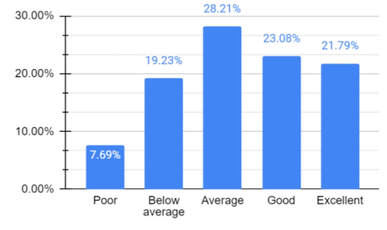
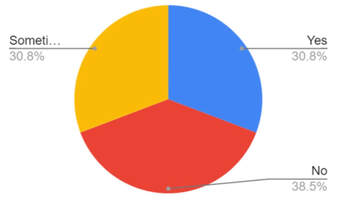
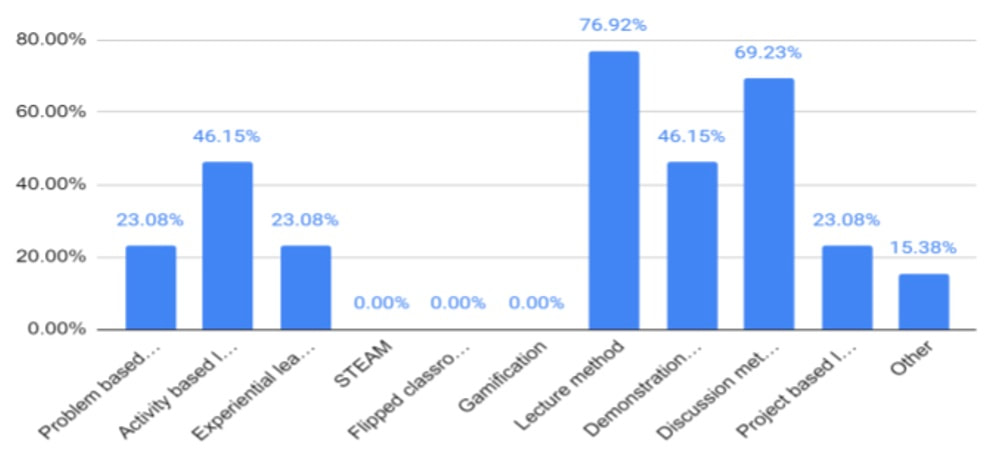
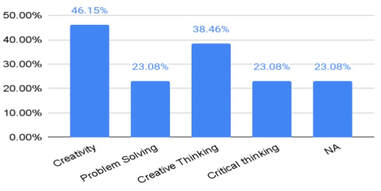
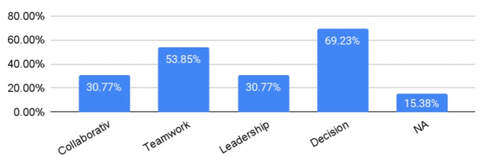
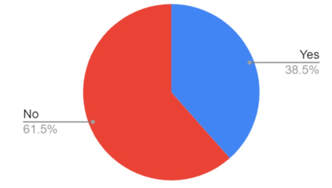
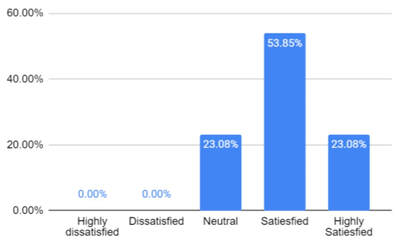


 RSS Feed
RSS Feed
